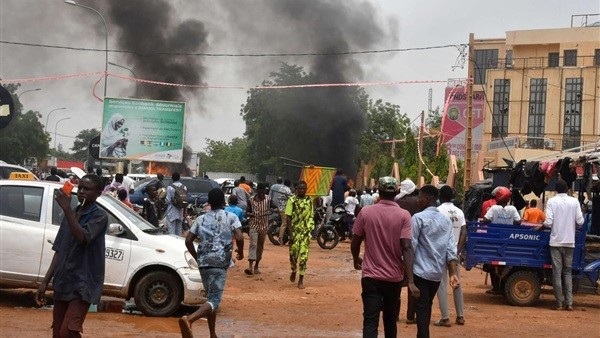Niger teetering on edge of famine

West Africans writhe
under rising food prices because of the coup that took place in Niger.
The prices of beef and
cereals have increased by more than 40%.
Nigeriens also suffer a
significant shortage of foodstuffs. This has prompted the World Food Programme (WFP)
to warn against the risk of famine, to which over 10 million people are prone
in the West African country which is mired in poverty.
Many West African
markets, especially in Nigeria, Benin and Burkina Faso, depend on meat and dry
food imports from Niger.
Niger has been living
in isolation from its regional surroundings for more than a month now due to
the measures taken by the Economic Community of West African States (ECOWAS),
in protest against the coup that overthrew elected president Mohamed Bazoum.
Niger is also heavily
dependent on neighbouring countries, specifically Nigeria, in importing food
commodities and supplies.
However, ECOWAS-imposed
sanctions have disrupted thousands of trucks at the border between the two
countries.
This has led to a
severe increase in food prices. The increase amounts to between 20 and 30%.
According to the UN
Office for the Coordination of Humanitarian Affairs, this crisis is expected to
cause deterioration in the humanitarian situation of approximately 7.3 million
people.
The office stressed the
need for applying humanitarian exemptions from sanctions to avoid the rapid
deterioration of food security and nutritional situation in Niger.
Humanitarian
response plan
Niger's humanitarian response
plan seeks to raise $584 million to meet humanitarian needs.
Nevertheless, the plan has
so far received only 39% of the total amount requested.
A regional spokesman for
the WFP said about 6,000 tonnes of goods belonging to the programme are stuck
outside the borders, including cereals, cooking oils and food for malnourished
children.
Niger, on the edge of
the Sahara Desert, has seen a series of coups and long periods of political
instability in the decades since independence from France in 1960.
Serious
concerns
For his part, Mohamed
Ezzeddine, an African affairs specialist, said Niger's military coup and the
closure of land and air ports in the country raised serious concerns about the
deterioration of the security and humanitarian situation in the country and its
negative repercussions on the regional environment as a whole.
"These
developments also raised concerns over the return of the wave of coups to
Africa, especially after a series of economic and political reforms," he
told The Reference.
He added that with the
succession of economic crises due to the war in Ukraine and the imposed search
for new resources for energy, and others that support food security, all this would
lead to a great risk of famine.







